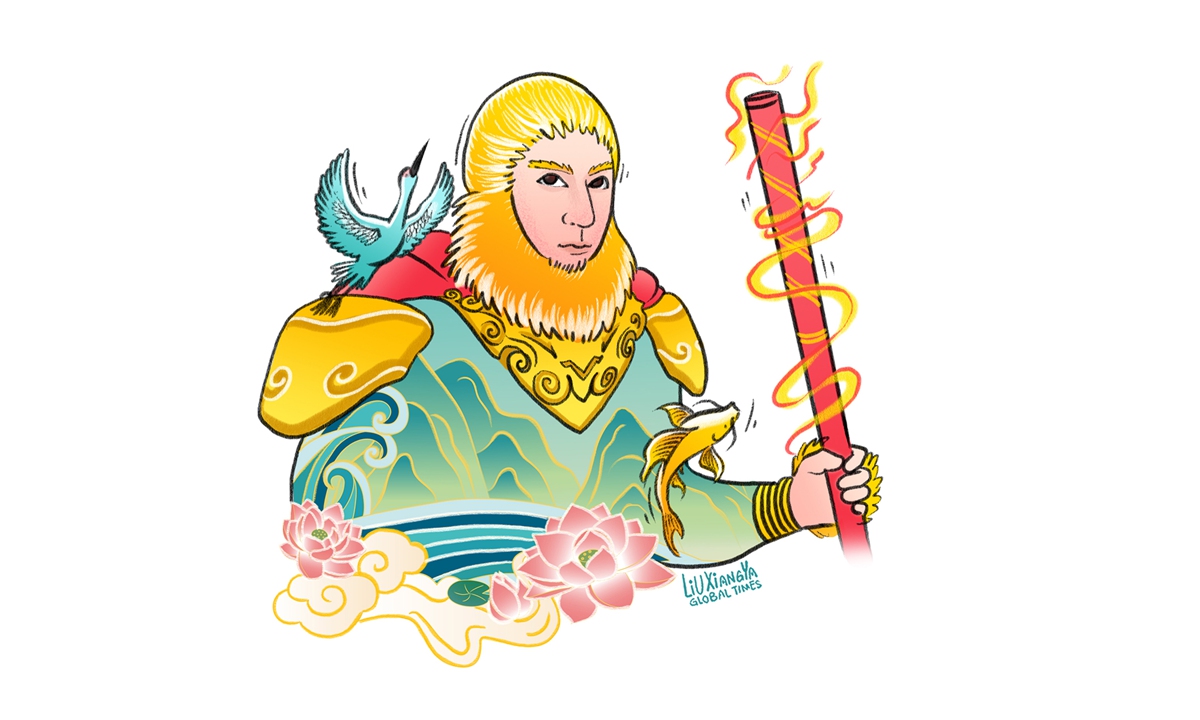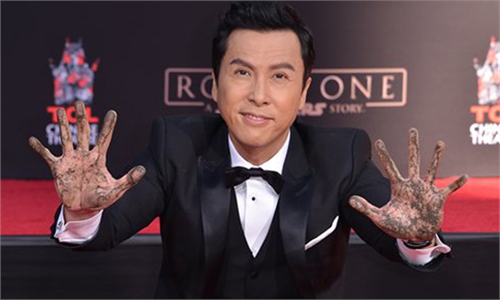ARTS / FILM
All adaptations of Monkey King welcomed, sensible ones a plus

Illustration: Liu Xiangya/Global Times
As one of the most influential Chinese works in the global film and television market, Journey to the West, one of China's "Four Great Classical Novels," has been adapted into countless versions in both Asia and beyond. And 2023 is particularly special as both a TV show and film inspired by the classic work will be out on US platforms.
The various Western adaptations of Journey to the West, the Chinese classic more than 400 years old, and the very production process involving Asian actors and producers, exemplify the increasing, hard-won cultural recognition of the Asian community in the US.
The recent Disney+ show American Born Chinese, based on the Journey to the West story, focuses on the struggles and self-salvation of Chinese Americans. One of the story lines played by Oscar winner Ke Huy Quan not only presents the marginal situation Asian actors have faced in Hollywood for so many years, but also has a lot of overlap with his personal experience. Additionally, to some extent it also represents the stereotypes, marginalization and neglect Asians must deal with in the US.
In some scenes in the show, the actors read lines in classical Chinese, which surprised many viewers in China, some of whom commented that they now had greater respect for Chinese Americans in the US film and television industry.
The fact that even classical Chinese can be included in the show is thanks to the impressive and predominately Asian cast and crew of the show.
Another work, animated film The Monkey King, produced by Netflix and directed by Anthony Starkey, will be launched on the streaming platform on August 18. Famed Hong Kong comedian and filmmaker Stephen Chow has joined the project as an executive producer, which has attracted high attention among Chinese moviegoers as Chow's impressive acting as the Monkey King in the 1995 fantasy-comedy film A Chinese Odyssey helped make the film a huge success in China during the 1990s. It is also noticeable that Netflix announced that the movie would feature an all-Asian voice cast.
A major reason why Journey to the West has been so popular in both China and abroad, is that its spiritual core is to resist oppression, challenge injustice and cultivate oneself. This essential power can resonate with anyone.
Although the level of authenticity in these multiple adaptations is a point to be debated, the high profile and frequency of such adaptations imply that Chinese American actors have gained more say and thus better control of the future direction of the ethnic group at the cultural level.
A similar phenomenon has also been seen at various international film festivals. Everything Everywhere All at Once, a film that focuses on a Chinese-American immigrant family, won big at this year's Academy Awards, while Asian filmmakers won multiple awards at the Cannes Film Festival.
This year's adaptations are of course not the first time the US companies have tried to cash in on Monkey King, but previous works seemingly were even more difficult for people from a Chinese background to comprehend. Back at the beginning of the century, The Monkey King, a 2001 television miniseries produced by NBC and the SciFi Channel, tried to adapt the classic novel. However, the romance story between a US businessman and Guanyin, the Bodhisattva of Compassion, caused strong controversy among viewers. Into the Badlands, a 2015 television series produced by AMC, is also loosely based on Journey to the West.
Adaptations usually face more stringent scrutiny by both supporters of the original work and new audiences, especially when it comes to a nation's classics. In addition to the visuals, costumes and storytelling, screenwriters must walk a difficult tightrope when it comes to balancing being faithful to the origin and making the story more understandable for global audiences.
But in comparison, other countries, including Japan and South Korea, have also adapted the classic many times and some were quite well received.
In the end, these adaptations are overall a positive force, as they show the rise of Chinese cultural affinity and allow more people around the world to come into contact with Chinese culture.

